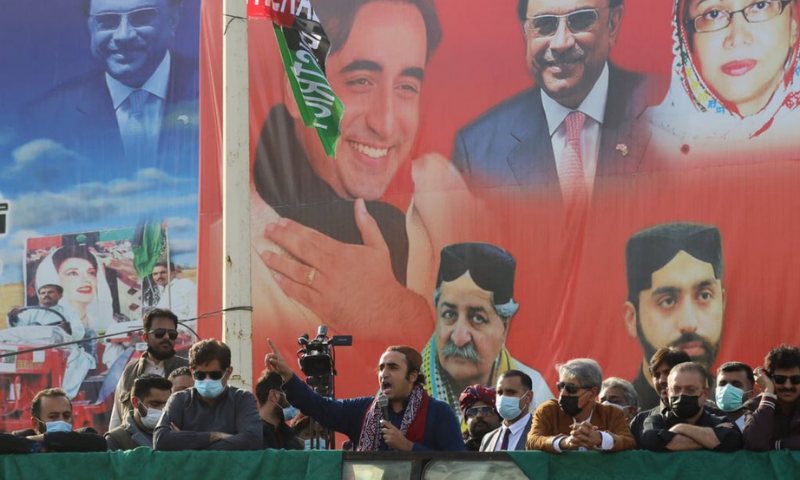PRIME MINISTER Imran Khan has issued a warning that he would be more dangerous on the streets than he is in government. He delivered these meaningful remarks during a live session with callers while answering their queries.
However, this particular remark was not in response to any specific question and was a part of his diatribe against the opposition. In the lengthy session, Mr Khan defended his government’s performance and tried to argue that the economic situation was rather favourable and not as dire as was being painted by the opposition and the media.
He devoted considerable time to lambasting the opposition — with special focus on the Sharifs — and emphasised repeatedly that pursuing them was a ‘jihad’. However, at the end of the session he volunteered this opinion about being a greater danger on the streets which many have construed as a threat.
It is fairly obvious that the prime minister is cognisant of the trouble that his government is in from a political and economic perspective. His remark was surely an implicit acknowledgement that the PTI could find itself out of power. It was a signal, perhaps a message, that he was ready for his role in the opposition. It almost sounded like he was relishing the possibility of being liberated from the shackles of power so that he could flex his muscles on the streets and atop the container.
Read more: Red zone files: The darkest hour
If that is indeed the case, then one can also see how some key themes in his discourse could form the basic ingredients of the narrative that the PTI may adopt if it finds itself out of power and on the campaign trail.
The first ingredient was the obsessive focus on the opposition. Mr Khan is now returning to his favourite theme and will increasingly harp on it in the coming days. The PTI is thus expected to respond to criticism of its performance by saying that the system is at fault and in such a system these ‘mafias’ remain outside the reach of the law.
The second ingredient sprouts from the first one. It connects to what the prime minister said repeatedly that whatever his government could not do was because institutions or vested interests would not allow it to be done. Whether it was the issue of stay orders or weak NAB prosecution or other failings, he has now made it clear that his narrative is that it was the fault of others that he could not deliver on the promises that he had made to the citizens.
The opposition has obviously trashed such arguments and said the prime minister was increasingly sounding like a frustrated and defeated man who could sense that his government’s days were numbered. Whatever the fact, it is clear that the government is showing signs of being under pressure. Mr Khan’s speech was the latest manifestation of this reality.
Published in Dawn, January 25th, 2022













































